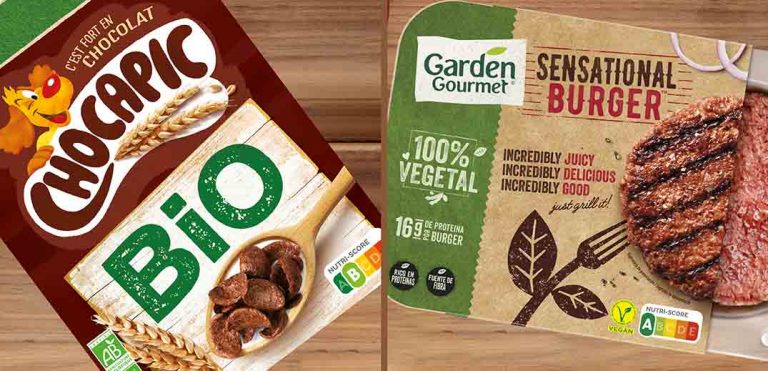
Food giant Nestlé is implementing the Nutri-Score nutrition labelling scheme in two countries in Southern Europe.
Spain and Portugal have become the seventh and eighth country to see Nestlé adopt the scheme, after Austria, Belgium, France, Germany, Luxembourg, and Switzerland.
Specific brands in Southern Europe selected by Nestlé to carry the label include its breakfast cereals Fitness Original, Nesquik Alphabet, and Chocapic Bio, as well as its plant-based food line, Garden Gourmet.
Marco Settembri, Nestlé CEO for Zone Europe, Middle East and North Africa, said he was ‘proud’ to extend the implementation of Nutri-Score to Spain and Portugal – which takes Nestlé’s Nutri-Score product count up to 7,500 across the bloc.
“Further studies have confirmed what we believe: Nutri-Score works with consumers in Europe and it has the potential to become the EU-wide system.”
A hotly debated scheme
Nutri-Score was first developed in France in 2017. The voluntary label has since been trialled or adopted by food brands including PepsiCo, the Kellogg Company, and of course, Nestlé.
The scheme ranks food from -15 for the ‘healthiest’ product to +50 for those that are ‘less healthy’. On the bases on this score, the product receives a letter with a corresponding colour code: from dark green (A) to dark red (F).
In mid-2019, Nestlé announced its support for Nutri-Score as the preferred nutrition labelling scheme for food and beverage products in Europe, saying that the scheme provides ‘easy-to-understand nutritional information’ at a glance.
However, not all in Europe are as supportive of the Nutri-Score system. In Germany, for example, the German Sugar Industry Association has spoken out against front-of-pack rating systems based on algorithms – such as Nutri-Score – arguing that they mislead consumers.
In Italy, it has been suggested that the Nutri-Score system poses a risk for Italian-made products, and is exclusionary of foods such as extra virgin olive oil and Italian specialties Parma ham, Parmigiano Reggiano, and Grana Padano.
FEDIOL, which represents Europe’s vegetable oil and proteinmeal sector, shares similar concerns that the scheme excludes single-ingredient foods, such as vegetable oils and fats.
Could Nutri-Score be adopted EU-wide?
Nestlé not only backs Nutri-Score as the preferred nutrition labelling scheme for its own food and beverage products, but has spoken out in support of its mandatory use across the bloc.
In April this year, the Swiss food maker was joined by food and retail majors Danone, Fleury Michon, Albert Heijn, Carrefour Belgium, and Lidl Germany, in its support of EU-wide implementation.
The European Commission, however, is not convinced.
In its recently unveiled Farm to Fork strategy, the Commission surprised many by failing to commit to Nutri-Score. Rather, it noted plans to propose a harmonised mandatory front-of-pack nutrition label by Q4 2022.
“We are proposing a mandatory front of pack nutrition label,” said European Commissioner for Health and Food Safety Stella Kyriakides at the time.
“We will not be recommending any specific type of front-of-pack scheme…going forward we will be launching an impact assessment on the different types of front-of-pack labelling.”